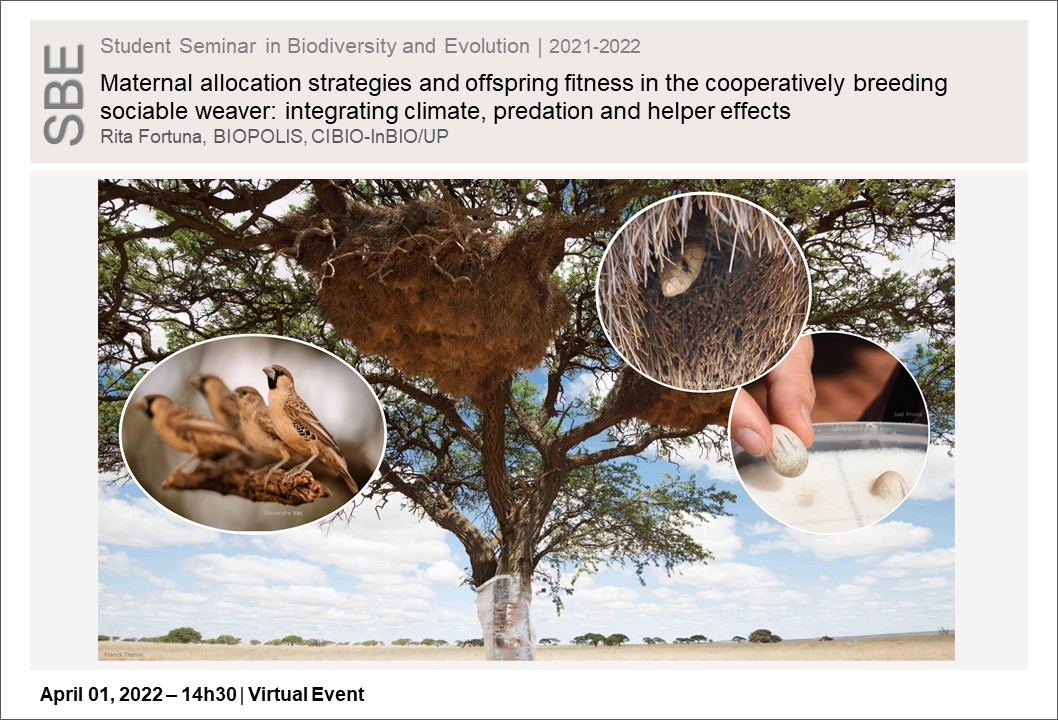Maternal allocation strategies and offspring fitness in the cooperatively breeding sociable weaver: integrating climate, predation and helper effects
01 Apr 2022 - Rita Fortuna, BIOPOLIS, CIBIO-InBIO/UP | 14h30

STUDENT SEMINAR IN BIODIVERSITY AND EVOLUTION
Individuals are predicted to adopt flexible reproductive strategies in response to environmental factors that influence survival and reproductive success. In birds, females can vary egg number, size, and content, which may affect offspring behaviour and ultimately survival. In my PhD thesis, I investigated environmental effects on maternal allocation strategies and reproductive success in a colonial cooperatively breeding bird, the sociable weaver Philetairus socius.
The general aims of this work were to 1) investigate how prenatal maternal allocation varies with environmental factors – climate, predation risk and social groups, 2) explore how offspring begging behaviour - a trait found to be influenced by maternal effects – may influence cooperative care rules and 3) test whether helpers modulate the effect of climatic conditions on offspring early-life survival.
In this seminar, I will present the results of the five chapters of my thesis. In brief, I found that maternal reproductive allocation was higher in better climatic conditions, under reduced adult and offspring predation risk, and when breeding with more helpers. The number of helpers was also found to positively associate with fledging success and to modulate the association between climatic conditions and first-year survival of female offspring. When analysing the response of breeders and helpers to offspring begging calls, I found that not all individuals responded equally to offspring demand. By investigating maternal allocation strategies in a cooperatively breeding system, this work expands existing knowledge on the effect of helpers on reproductive investment and success, and unveils how social factors may interact with other environmental factors in natural wild systems.
Rita Fortuna is a BIODIV PhD student who will soon defend her PhD thesis entitled ‘Maternal allocation strategies and offspring fitness in the cooperatively breeding sociable weaver: integrating climate, predation and helper effects’. Her work was supervised by Dr Rita Covas (CIBIO-InBIO/UP and FitzPatrick Institute) and Dr Claire Doutrelant (CEFE-CNRS and University of Montpellier, France), in collaboration with Dr Matthieu Paquet (IMB, France). Rita’s research is focused on the study of environmental effects on reproductive strategies, particularly on females’ allocation of resources to reproduction. Rita’s work combines analyses of long-term datasets with experimental approaches to investigate whether climatic, ecological and/or social factors interact to shape reproductive allocation and breeding success in a long-term monitored population of sociable weavers Philetairus socius, a colonial cooperatively breeding bird endemic to Southern Africa.